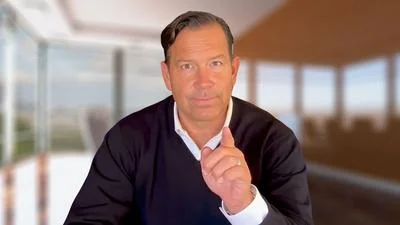Environmentalism in America is dead. It has been replaced by climatism and renewable energy fetishism.
The movement birthed Rachel Carson's Silent Spring in the early 1960s and Earth Day in the 1970s — a movement that once aimed to protect landscapes, wildlands, whales, and wildlife — has morphed into the NGGO-corporate-industrial-climate complex. Rather than preserve wildlands and wildlife, today’s “green” NGOs have devolved into a sprawling network of nonprofit and for-profit groups aligned with big corporations, big banks, and big law firms. In the name of climate change, these NGOs want to pave vast swaths of America’s countryside with oceans of solar panels and forests of 600-foot-high wind turbines.
The simplest way to understand how climatism and renewable energy fetishism have swamped concerns about conservation and wildlife protection is to follow the money. Over the past decade or so, the business of climate activism has become just that — a business. The gross receipts of the top 25 climate-focused NGOs now total about $4.7 billion per year.
To understand the staggering amount of money being spent by the NGO-corporate-industrial-climate complex, look at the Rocky Mountain Institute, the Colorado-based group founded by Amory Lovins, the college dropout who, for nearly 50 years, has been the leading cheerleader for the “soft” energy path of wind, solar, biofuels, and energy efficiency. (Click here for my 2007 article on Lovins.) Between 2012 and 2022, Rocky Mountain Institute’s annual budget skyrocketed, going from $10 million to $117 million.

Indeed, the group provides a prime example of how corporate cash and dark money are fueling the growth of the NGO-corporate-industrial-climate complex. Among its biggest donors are corporations that are profiting from the alt-energy craze. Last year, Wells Fargo, a mega-bank that is among the world’s biggest providers of tax-equity financing for alt-energy projects, gave Rocky Mountain Institute at least $1 million. On its website, Wells Fargo says it is “one of the most active tax-equity investors in the nation’s renewable energy sector, financing projects in 38 states.” In 2021, the bank bragged that it had surpassed “$10 billion in tax-equity investments in the wind, solar, and fuel cell industries. Wells Fargo has invested in more than 500 projects, helping to finance 12% of all wind and solar energy capacity in the U.S. over the past 10 years.”

Elite academics produce studies that provide ammunition to the NGO-corporate-industrial-climate complex. Last year, in an article published in the left-wing magazine Mother Jones, Jesse Jenkins, an assistant professor of mechanical and aerospace engineering at Princeton University, claimed, "We now have the potential to rebuild a better America." Doing so, he said, will require utility-scale solar projects covering “an area the size of Massachusetts, Rhode Island, and Connecticut combined, and wind farms that span an area equal to that of Illinois, Indiana, Ohio, Kentucky, and Tennessee.”
Jenkins claims we can have a “better America” by covering an area the size of eight states with solar panels (nearly all of which are made with Chinese components) and endless forests of massive, noisy, bird-and-bat-killing wind turbines. Put another way, the Princeton net-zero plan would require paving some 239,000 square miles of land with solar and wind projects, and that doesn’t include the territory needed for all the high-voltage transmission lines that would be needed!
On its face, the notion is absurd.

Perhaps the most striking example of the environmental betrayal now underway is the climate activists’ support for installing hundreds, or even thousands, of offshore wind platforms on the Eastern Seaboard, smack in the middle of the North Atlantic Right Whale’s habitat.
Among the climate groups shilling for offshore wind is the Center for American Progress (gross receipts: $40 million), founded by John Podesta, who now serves as President Biden’s advisor on “clean energy innovation and implementation." Last year, Podesta’s group published an article claiming "oil money" was pushing "misinformation" about offshore wind.
Rather than defend whales, the group claimed the offshore wind sector is “a major jobs creator and an important tool in reducing greenhouse gas emissions.” Who funds the Center for American Progress? Among its $1 million funders are big foundations, including Bloomberg Philanthropies, the Gates Foundation, and the Chan Zuckerberg Initiative. Two dark money NGOs, Climate Imperative and ClimateWorks, each gave the group up to $500,000 last year. On the corporate side, the group got up to $500,000 from Amazon.com and Microsoft.
If climate groups are seriously concerned about reducing emissions, they would be clamoring for the increased use of nuclear energy, the safest form of zero-carbon electricity generation. It also has the smallest environmental footprint. But the Sierra Club, in its own words, "remains unequivocally opposed to nuclear energy."
The punchline here is obvious: it’s time to discard the shopworn label of “environmentalism.” The NGOs discussed above, and others like them, are not environmental groups. Their response to the specter of catastrophic climate change will require wrecking our rural landscapes, killing untold numbers of bats, birds, and insects, and industrializing our oceans with large-scale alt-energy projects.
America needs a new generation of activists who want to spare nature, wildlife, and marine mammals by utilizing high-density, low-emission energy sources like natural gas and nuclear energy. We need advocates and academics who will push for a weather-resilient electric grid, not a weather-dependent one. Above all, we need true conservationists who promote a realistic view of our energy and power systems. That view will include a positive view of our place on this planet, a view that seeks to conserve natural places, not to pave them.
Robert Bryce is a Texas-based reporter who has authored six books, including his latest, “A Question of Power: Electricity and the Wealth of Nations.” He is also a co-producer of the new five-part docuseries, "Juice: Power, Politics & The Grid." A longer version of this piece was initially published on Substack. Follow Bryce at robertbryce.substack.com.









